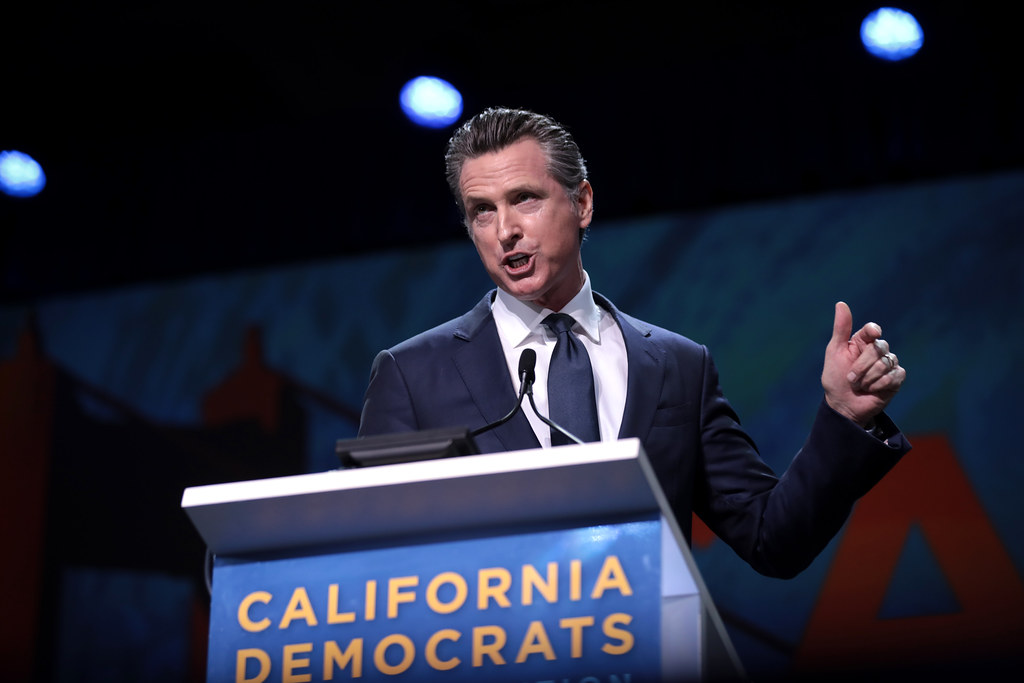Wealth & Poverty Review Newsom and Garcetti Only Pay Lip Service to Homelessness Problem
Los Angeles Mayor Eric Garcetti and California Governor Gavin Newsom have changed their tune on homelessness. Is this a sign of hope for a state in dire need of relief for their burgeoning homeless population? Or are these merely toothless political moves in the face of a recall election?
On July 29, Garcetti approved a new ordinance banning homeless encampments from most places in the city. The ordinance directs that no one shall “sit, lie, sleep, or store, use, maintain, or place personal property” near various locations throughout the city, such as freeways and roads, schools, day care centers, public parks, and public libraries.
But only a year ago, Garcetti was hesitant about such heavy-handed enforcement when a judge ordered the removal of homeless encampments located along LA’s freeways. “There’s ethical issues,” he objected at the time. “There’s health issues. And then there’s just logistical issues. I don’t know who could enforce this besides a law enforcement officer. I don’t think I want those images. That’s not good for us.”
In 2018, the LA Times reported that homelessness increased 49% since Garcetti took office in 2013. Since then, the number of people experiencing homelessness within L.A. has continued to rise, from 31,285 in 2018 to 41,290 in the 2020 count.
How did Garcetti go from “I don’t think I want those images” to signing off on a wider-sweeping ordinance than was ordered a year ago?
Similarly, California Governor Gavin Newsom shifted his normal rhetoric when in July he applauded recent sweeps in Echo Park Lake and Venice Beach.
“You got to be honest, this is not acceptable,” said Newsom while touring homeless encampments. “People shouldn’t be living out in the streets and sidewalks…and the notion that until everything is perfect, we can’t do anything [about encampments], I completely reject.”
Last November, however, Newsom dragged his feet when the city of Tulare requested that a homeless encampment be removed from Highway 99, citing a “severe threat of accident and bodily harm.” It took the death of a homeless man, struck by a driver months later, for Newsom to respond.
Like Garcetti, Newsom’s record with homelessness has been abysmal. Newsom likes to brag about the declining homelessness rate in San Francisco when he was mayor. What he doesn’t mention is that unsheltered homelessness increased from the time he entered office in 2004 and when he left in 2011. California has fared no better under his leadership, with homelessness continuing to climb despite billions of dollars thrown at the problem.
How is it that Newsom could applaud recent sweeps in Los Angeles after turning a blind eye to a dangerous roadside encampment last November?
This apparent about-face in both Newsom and Garcetti is surprising, unless one considers the current political climate: Newsom is currently fighting to retain his governorship in the face of an unprecedented recall election. He faces an unhappy populace on his handling of pandemic shutdowns, environmental issues, and homelessness.
Where does Garcetti come in? Over one-quarter of the entire nation’s homeless population resides in California according to the U.S. Department of Housing and Urban Development. With over 66,000 homeless as of 2020, the greater Los Angeles area makes up 40% of California’s homeless population, and most of them are unsheltered. Garcetti and Newsom’s “Housing First” strategies haven’t worked. These changes in strategy appear to be an attempt to save face and persuade voters that they remain worthy of trust. Voters, however, aren’t convinced.
Many Californians have fled the state in the face of these problems, resulting in California losing a Congressional seat for the first time in history. Those that remain are largely unhappy with the current situation.
In a recent poll from Emerson College Polling, 52% of participants called Newsom’s handling of homelessness “poor” (“poor” being the worst possible rating). Only 16% rated his work on the issue as “good”, and 7% rated it “excellent.”
Ballots have already been sent to California voters in preparation for the election on September 14. It’s up to voters to decide whether their politicians are ready to tackle homelessness head-on or if they’re simply paying lip service to remain in power.

